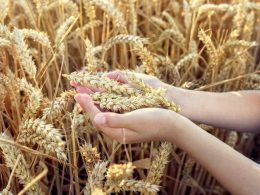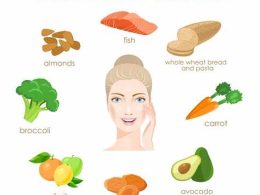Introduction
Initially, osteoporosis is always silent and only manifests as any number of unexpected fractures with no apparent reason or a severe pain in a previously normal and untroubled person. Poverty and lack of awareness increased health-related problems in bones among young and old individuals in Pakistan, so-now it probably becomes necessary to tell us how much is amount for our bone health daily. The most talkative two nutrients would be calcium and vitamin D since these are the two found to be the basics of bone strength, stability, and durability.
This is what the blog will be about: these nutrients and the current reality about bone health in Pakistan-how much calcium does one need vitamin role in making strong bones at any age.
Bone Health is More Important than You May Think
Bones are not static structures providing scaffolding for the body; they are dynamic living tissues subject to continual resorption and formation. Bones are responsible for movement, protection of vital organs, mineral storage, and blood cell production. The inability to withstand considerable stress leads to a clinical condition such as osteoporosis or a comminuted fracture with its attendant effects, such as suffering immobility and poor quality of life.
Reduced sunlight exposure has caused an increasing number of people in Pakistan to fall prey to Vitamin D deficiency and calcium deprivation. Such ailments are silent for several years, thus preventive care in bone health is appreciated-if not, necessary-where curative care sets in only once a problem surfaces.
Current Bone Health Status in Pakistan
Most research and surveys indicate that in recent years bone health has turned into a national issue for concern in Pakistan. Factors contributing to such an increases in bone health problems include:
- Vitamin D deficiency: For 60-70% of the population, inadequate exposure to sunlight, cultural dressing codes, and a sedentary life make them somewhat vitamin D deficient.
- Low but consistent intake of calcium: Dependable failure of diet from sources like dairy, leafy greens, and calcium-rich foods.
- Lack of physical activity: Sedentary lifestyle reduces both muscle and bone mass in urban youth.
- Early marks of bone diseases emerging in youth: Joint pain, backache, and fatigue while teenagers and those in their 20s experience these symptoms.
Worse is the fact that the amount of undernutrition and lack of exposure to sunlight has resulted in an increase in bone and joint complaints, especially among women and aged persons.
Calcium: The Pillar of Bone Story
Almost all mineral calcium provides bones with strength. About 99% of calcium in the body is stored in bones and teeth to provide density and strength. The rest 1% is important for some very vital operational activities like muscle work, blood clotting, and nerve function.
The body robs calcium from bones if the absorption of calcium is little from diet. This invariably decreases the gradual strength of the bone.
Calcium Requirement in Pakistan Per Day
The amounts described in the Health and International bodies are mostly accepted and recommended worldwide for calcium intake.
- Children (4-18 years): 800-1300 mg/day
- Adults (19-50 years): 1000 mg/day
- Women (more than 50 years) and Men (more than 70): 1200 mg/day
- Pregnant and Lactate: 1200-1300 mg/day
These figures are of course among Pakistani adults, although often, actual intake has fallen far below what is recommended as many diets are devoid of sources containing calcium.
Vitamin D: The Inactive Partner of Calcium
Even with amazing calcium intake through the diet, it will prove difficult to absorb it in the body without the intervention of vitamin D. The fat-soluble vitamin exists primarily to facilitate the absorption of calcium from the intestines into the blood and deposit then strengthen the bones.
It is a special case, meaning its source of production-the sun’s radiation. However, in Pakistan, the kind of urban lifestyle hampers vitamin synthesis and causes its general deficiency.
Signs You May Be Lacking Calcium and/or Vitamin D
They very quietly eat away at you for years. The classic early warning signs are:
- Numerous muscle cramps or spasms
- Persistent fatigue or weakness
- Pain in joints or bones, notably lower back and legs
- Brittle nails or thinning of hair
- Fractures are slow to heal
In case you have any of these symptoms, it would be worth seeing a health care provider and checking your calcium and vitamin D levels.
The Best Food Sources of Calcium and Vitamin D for Bone Health in Pakistan

Nourishment along with balanced diets contribute to the upkeep of healthy bones in Pakistan. Mentioned calcium-rich foods are:
- Dairy products: milk, yogurt, and cheese.
- Plant green leaves: spinach, cabbage, mustard greens.
- Fish with edible bones: sardines, salmon.
- Nuts and seeds: almonds and sesame seeds.
- Fortified cereals for breakfast: plant milk alternatives.
Sources for Vitamin D include:
- Sunshine (for 10-30 minutes 3-4 days/week).
- Fatty fish mackerel, salmon, tuna.
- Egg yolk.
- Fortified milk and margarine.
Best dietary and sunlight sources are deficient not always, especially in people living in countries with smaller sunlight or one who cannot take such a diet.
Role of Supplements in Bone Strength
Sometimes even after best planning for meals not all nutrients are obtained daily. This is the place where supplements are going to help.
Calcium and vitamin D supplements would fill gaps in daily nutrition. If considering supplements for bone strength, calcium should be combined with vitamin D to allow absorption, should offer 500-600 mg calcium in a tablet, manufactured by authorized companies registered in Pakistan, and would have minimum fillers with high digestibility.
The best way to administer all supplements is to consult a doctor or registered nutritionist to avoid overdosing.
Lifestyle Suggestion to Strong Bones
Nutrition is important but is not only the proper nutrition in making good bones. The modifications of these lifestyles may really go a long way:
- Weight-Bearing Exercise: Activities like walking, jogging, stair climbing or resistance training must be performed to maintain dense bones.
- Sunlight Exposure: Several times a week, early morning or late afternoon.
- Quit Smoking & Limit Alcohol: Both weaken bones.
- Healthy Body Weight: Underweight or overweight increases fracture risk.
- Proper Hydration & Balanced Diet: Essential for overall bone metabolism.
Cultural and Regional Challenges Addressed
Rural areas of Pakistan have almost very poor availability of dairy products. Second, even traditional dresses do not allow sunlight exposure. To top it all, a good segment of the population, less or none of it has knowledge of the daily calcium requirements in Pakistan. The above public health campaigns combined with nutrition programs, passive vitamin D deficiency screening, and easy access to fortified foods can do wonders.
Conclusion: Creating a Stronger Future
Your bones are an investment that will last a lifetime. Learn about the importance of calcium and vitamin D in supplying strength to bones, and be sure to meet your daily calcium needs and be active against vitamin D deficiency in your golden years; otherwise, much suffering will be experienced. This fortification of bones in Pakistan with balanced diet as individual effort will make a national obligation. Sensible lifestyles and collateral calcium supplements wherever needed could improve the strength and nourishment of all bones.












